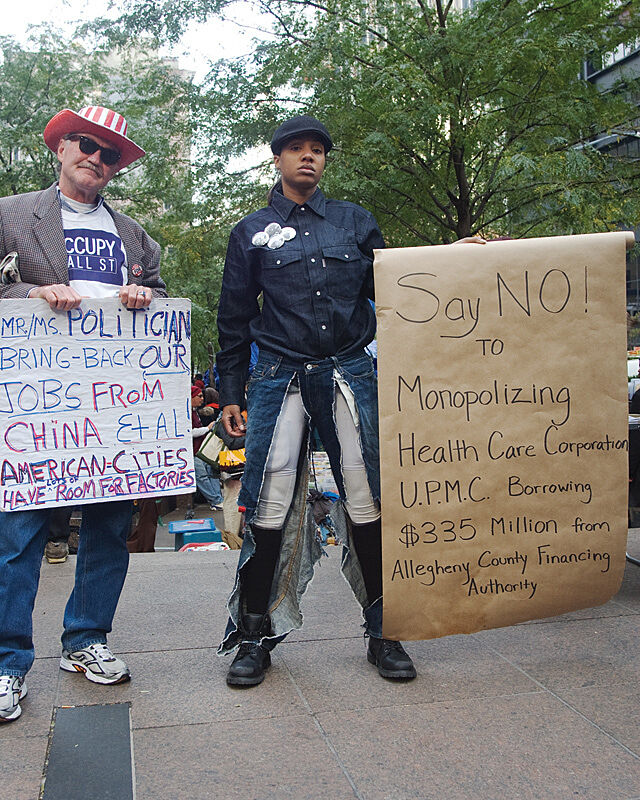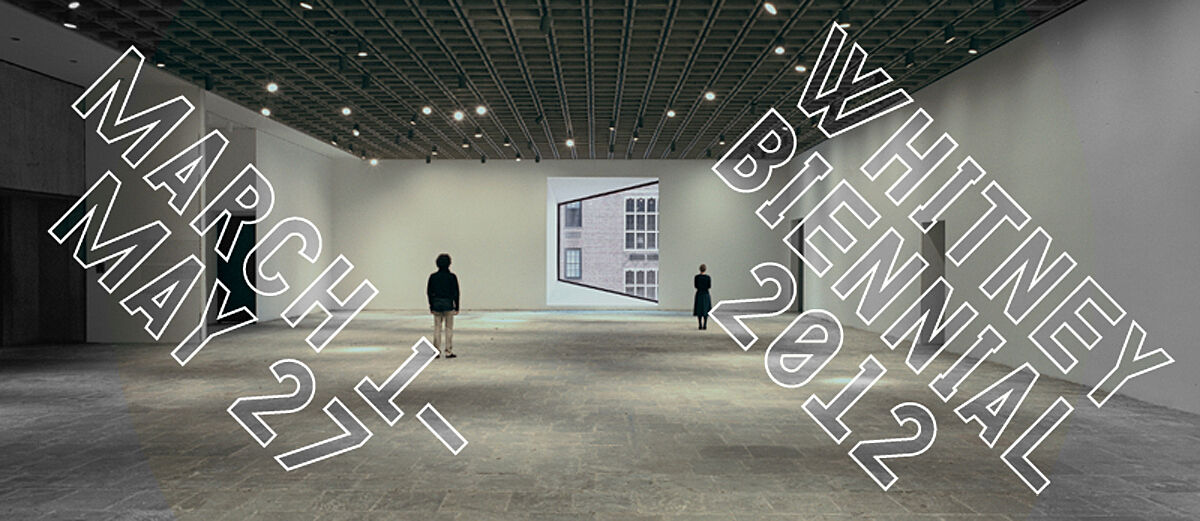LaToya Ruby Frazier
Video: LaToya Ruby Frazier
Born in 1982 in Braddock, Pennsylvania
Lives and Works in New Jersey
LaToya Ruby Frazier's photographs cover three bodies of work that revolve around her hometown, Braddock, Pennsylvania. The working-class suburb of Pittsburgh thrived in the first half of the twentieth century as home to a large Andrew Carnegie–owned steel mill. With the collapse of the steel industry in the 1970s, however, Braddock entered a long and ongoing period of economic crisis. The Notion of Family (2002– ), perhaps Frazier’s best-known work to date, is an ongoing series of searing black-and-white photographs documenting the artist’s family, one of the many that has borne the brunt of the town’s social, economic, and environmental decline.
The works on view in the 2012 Biennial pick up from that series. The Homebody self-portraits capture Frazier wearing the pajamas and shrouded in the blanket of her deceased step-great-grandfather, who suffered from the chronic occupational illnesses endemic to steel workers. The diptych Epilepsy Test compares the 2010 demolition of the Braddock U.P.M.C. hospital, one of the town’s primary health care providers as well as a major local employer, to the body’s own deterioration. The prints that make up Campaign for Braddock Hospital (Save Our Community Hospital) portray residents’ views and questions in response to the hospital’s closing. Other images in this series present ironic references to a recent Levi’s jeans advertising campaign set in Braddock. The buoyant egalitarianism of the campaign’s slogans, including “Go Forth” and “Everybody’s Work is Equally Important,” rings hollow juxtaposed against Frazier’s imagery of the marginalization of the town’s senior citizens and African Americans as they struggle for economic opportunity and access to health care.


